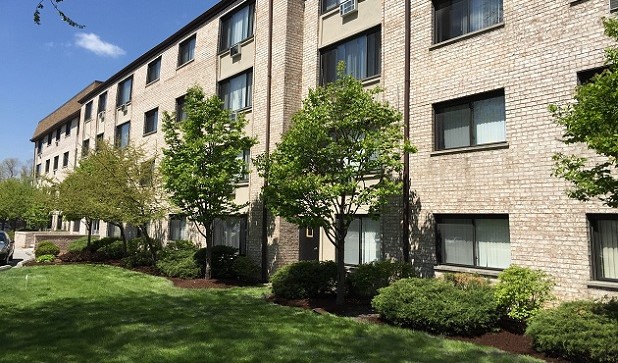
CHICAGO—The US multifamily market has been in the midst of a years-long boom, and demand is still robust. But in a year that could bring changes, especially when it comes to interest rates, potential sellers in the Midwest have taken a step back and hesitated to put their properties on the market.
“In the past six months, we noticed a bit of a slowdown,” Todd Stofflet, managing partner at Chicago-based KIG CRE, tells GlobeSt.com. He believes many owners may have instead decided to refinance their properties.
In many ways, that would not be an unreasonable strategy. Interest rates are quite low, and in the past few years lenders have looked very favorably on multifamily properties. But Stofflet also feels these owners might want to still consider potential sales.
For one thing, he says, after a period when it was sometimes difficult to guess what the Federal Reserve would do about interest rates, today “the crystal ball is clear.” To dispel uncertainty, Fed officials have carefully telegraphed their upcoming moves, and along with yesterday's hike in its key interest rate, experts believe another three hikes will come over the course of 2018. And to Stofflet, that means the optimal point to refinance may be past. But when it comes to selling, it's a different story.
“The environment is perfect right now,” he says, largely because investors are obviously eager to put more money into commercial real estate, and multifamily is at the top of many wish lists. “That creates a nice environment for executing dispositions.”
That was definitely the experience of Castle Lanterra Properties. As reported in GlobeSt.com, the Suffern, NY-based investor bought Midpointe Apartments, a multifamily property on the far southwestern edge of Chicago in 2014 for $28.5 million, and had been prepared to hold onto it for an extended period. But those plans changed last year when a number of institutional investors and family offices made inquiries about the 424-unit complex, a slightly surprising amount of attention for any property in the quiet Mt. Greenwood neighborhood. CLP sold it for $49.5 million.
2018 marked the first year that the average target allocation for real estate investments surpassed 10%, Stofflet says. And investors have shown interest in properties outside the top submarkets of core cities like Chicago. Cap rates in secondary markets, Stofflet points out, can run 50 to 75 bps higher than ones for similar properties in core cities. “That creates a nice opportunity for groups that may have not historically looked at Indianapolis or Louisville.”
In the Midwestern states where KIG CRE operates (IL, OH, MI, WI, IN, KY and IA), “we saw 144 institutional transactions in 2017, up from 31% from 110 in 2016. Sales volume in these states increased by 25%, from $5.65 billion in 2016 to $7.05 billion in 2017.”
And other factors may make refinancing less favorable than one year ago. For example, even though cap rates have so far remained at a steady 5.7% nationally from 2016 to 2017, the upward creep of interest rates means that will not last forever. Furthermore, Stofflet believes “cap rates are artificially low because of the amount of capital chasing deals,” and smart owners should foresee an environment that will only grow less favorable to selling.
Fannie Mae's chief economist noted that easing credit standards declined for the first time in five quarters — to the lowest level in a year, he adds. “We're also going to see a more conservative lending environment in 2018 than we did last year.”
As a result, many discussions are going on about whether to sell or lock in long-term financing on favorable terms. “There are a lot of owners sitting on the fence.”
Want to continue reading?
Become a Free ALM Digital Reader.
Once you are an ALM Digital Member, you’ll receive:
- Breaking commercial real estate news and analysis, on-site and via our newsletters and custom alerts
- Educational webcasts, white papers, and ebooks from industry thought leaders
- Critical coverage of the property casualty insurance and financial advisory markets on our other ALM sites, PropertyCasualty360 and ThinkAdvisor
Already have an account? Sign In Now
*May exclude premium content© 2025 ALM Global, LLC, All Rights Reserved. Request academic re-use from www.copyright.com. All other uses, submit a request to [email protected]. For more information visit Asset & Logo Licensing.







